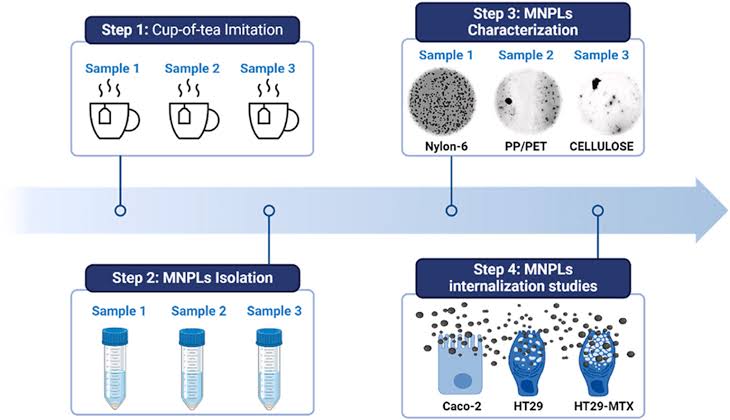Researchers in Spain have characterised how polymer-based commercial tea bags release millions of nanoplastics and microplastics when infused, thereby contaminating human intestinal cells.
The study by Autonomous University of Barcelona(UAB) shows for the first time the capacity of these particles to be absorbed by human intestinal cells, and are thus able to reach the bloodstream and spread throughout the body.
Results of the study are published in the journal ‘Chemosphere’. Plastic waste pollution represents a critical environmental challenge with increasing implications for the well-being and health of future generations.
Food packaging is a major source of micro and nanoplastic (MNPLs) contamination and inhalation and ingestion is the main route of human exposure.
The UAB researchers observed that when these tea bags are used to prepare an infusion, huge amounts of nanosised particles and nanofilamentous structures are released, which is an important source of exposure to MNPLs.
The tea bags used for the research were made from the polymers nylon-6, polypropylene and cellulose.















